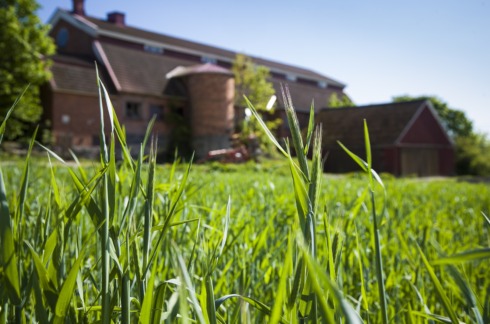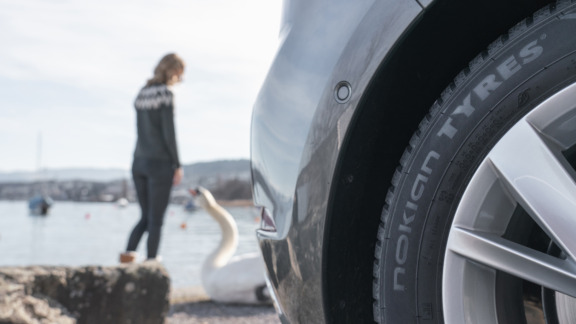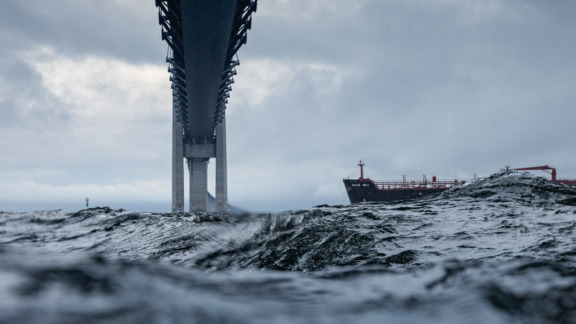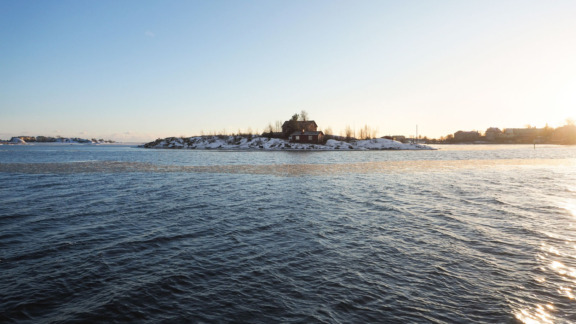Kymen Vesi analyses cargo ship wastewater for the benefit of the Baltic Sea
KYMEN VESI COMMITMENT
With its commitment, Kymen Vesi participates in BSAG’s Ship Waste Action cooperation, where waste waters from cargo ships is turned into biogas. The local water utilities collects samples from the wastewater of cargo ships visiting the port of HaminaKotka and analyses the test results. Kymen Vesi also cleans wastewater from cargo ships.

COMPLETED
Commitment made in 2022

DURATION
2022 – 2024
Kymen Vesi Oy is a water utilities company in southern Kymenlaakso, owned by three municipalities and serving the residents of Kotka, Kouvola and Pyhtää. The Mussalo wastewater treatment plant treats the wastewater collected from Kotka, Hamina, Pyhtää, Virojoki, Miehikkälä and southern Kouvola.
Our pledge is to become carbon neutral by 2035, which requires cutting emissions by improving energy efficiency in pumping stations, heat recovery from wastewater, a solar system and switching to lower-emission vehicles. Additionally, our involvement in research and development projects will further promote environmental protection and sustainable development.
With the Baltic Sea commitment for 2022-2024, Kymen Vesi commits to offer its resources, expertise, and financial support to improve the state of the Baltic Sea. The focus will be on implementing permanent changes following the results of the Ship Waste Action initiative coordinated by BSAG. Specifically, our efforts will be directed towards treating cargo ship-generated effluents for biogas production.
COMMITMENT GOALS
1
Kymen Vesi will receive the cargo ship-generated wastewater, which has been discharged in the port of HaminaKotka, and can be treated to, e.g., produce biogas; and
- collaborates with ship brokers, the port, the carriers, and the sewage sludge handlers to ensure a smooth process and flow of information
- strives to find solutions, in collaboration with the port, to resolve the logistical challenges related to cargo ships that carry large volumes of wastewater
- the trial aims to establish a permanent, multi-stakeholder collaboration for treating ship-generated effluents at the port.
2
Kymen Vesi will support the successful implementation of the pilot scheme through its endeavours and will continue to promote the opportunities available actively –
- by collecting samples, analysing results, and reporting on the wastewater quality and parameters per the agreement. Therefore, increasing both information on the potential for recovery of effluents; and an understanding of the usage of the vessel’s treatment facilities.
- by providing BSAG with the results from the analysis so that these may be used effectively to reduce the load in the Baltic Sea; for example, by authorities, in research, theses or other work aimed at developing the field in Finland and internationally.
- by appropriately investigating options for long-term development of wastewater management at the port in collaboration with the port. This may include, e.g., the construction of a fixed unloading line, mobile intermediate storage facility, and complementary means of receiving and delivering ship-generated effluents for treatment.
3
Kymen Vesi will further strengthen the circular economy of ship-generated wastewater after the end of the pilot phase
- by utilising learnings from the pilot phase to further develop in-house processes.
- by analysing the characteristics of ship-generated effluents throughout the commitment period and enabling these results to be used in various ways for the benefit of the Baltic Sea.
Environmental responsibility is an important value for our company. Ship Waste Action is a project that we can participate in and be part of important environmental work.
Emmi-Maria Ukko, Production Manager, Kymen Vesi
With this commitment, Kymen Vesi will contribute to the joint efforts in Ship Waste Action, thereby enabling the development of maritime operators and promoting the circular economy in maritime transport. Additionally, Kymen Vesi agrees to bring the collaboration referred to in this document into account in its communications. The progress of the pilot phase will be regularly monitored in joint meetings.
The duration of the commitment is three years, and its progress will be reviewed annually with BSAG.
CONTACT US










